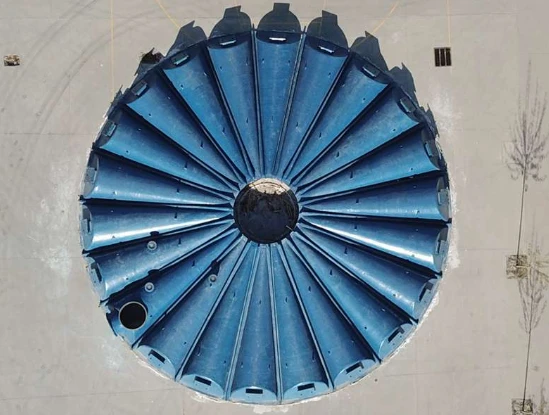
-
 Afrikaans
Afrikaans -
 Albanian
Albanian -
 Amharic
Amharic -
 Arabic
Arabic -
 Armenian
Armenian -
 Azerbaijani
Azerbaijani -
 Basque
Basque -
 Belarusian
Belarusian -
 Bengali
Bengali -
 Bosnian
Bosnian -
 Bulgarian
Bulgarian -
 Catalan
Catalan -
 Cebuano
Cebuano -
 China
China -
 China (Taiwan)
China (Taiwan) -
 Corsican
Corsican -
 Croatian
Croatian -
 Czech
Czech -
 Danish
Danish -
 Dutch
Dutch -
 English
English -
 Esperanto
Esperanto -
 Estonian
Estonian -
 Finnish
Finnish -
 French
French -
 Frisian
Frisian -
 Galician
Galician -
 Georgian
Georgian -
 German
German -
 Greek
Greek -
 Gujarati
Gujarati -
 Haitian Creole
Haitian Creole -
 hausa
hausa -
 hawaiian
hawaiian -
 Hebrew
Hebrew -
 Hindi
Hindi -
 Miao
Miao -
 Hungarian
Hungarian -
 Icelandic
Icelandic -
 igbo
igbo -
 Indonesian
Indonesian -
 irish
irish -
 Italian
Italian -
 Japanese
Japanese -
 Javanese
Javanese -
 Kannada
Kannada -
 kazakh
kazakh -
 Khmer
Khmer -
 Rwandese
Rwandese -
 Korean
Korean -
 Kurdish
Kurdish -
 Kyrgyz
Kyrgyz -
 Lao
Lao -
 Latin
Latin -
 Latvian
Latvian -
 Lithuanian
Lithuanian -
 Luxembourgish
Luxembourgish -
 Macedonian
Macedonian -
 Malgashi
Malgashi -
 Malay
Malay -
 Malayalam
Malayalam -
 Maltese
Maltese -
 Maori
Maori -
 Marathi
Marathi -
 Mongolian
Mongolian -
 Myanmar
Myanmar -
 Nepali
Nepali -
 Norwegian
Norwegian -
 Norwegian
Norwegian -
 Occitan
Occitan -
 Pashto
Pashto -
 Persian
Persian -
 Polish
Polish -
 Portuguese
Portuguese -
 Punjabi
Punjabi -
 Romanian
Romanian -
 Russian
Russian -
 Samoan
Samoan -
 Scottish Gaelic
Scottish Gaelic -
 Serbian
Serbian -
 Sesotho
Sesotho -
 Shona
Shona -
 Sindhi
Sindhi -
 Sinhala
Sinhala -
 Slovak
Slovak -
 Slovenian
Slovenian -
 Somali
Somali -
 Spanish
Spanish -
 Sundanese
Sundanese -
 Swahili
Swahili -
 Swedish
Swedish -
 Tagalog
Tagalog -
 Tajik
Tajik -
 Tamil
Tamil -
 Tatar
Tatar -
 Telugu
Telugu -
 Thai
Thai -
 Turkish
Turkish -
 Turkmen
Turkmen -
 Ukrainian
Ukrainian -
 Urdu
Urdu -
 Uighur
Uighur -
 Uzbek
Uzbek -
 Vietnamese
Vietnamese -
 Welsh
Welsh -
 Bantu
Bantu -
 Yiddish
Yiddish -
 Yoruba
Yoruba -
 Zulu
Zulu
Jan . 30, 2025 02:41
Back to list
frp products for thermal and nuclear power
FRP (Fiber Reinforced Plastic) products have emerged as revolutionary solutions in the thermal and nuclear power sectors. With growing demands for efficient, durable, and safe power generation systems, FRP offers an unparalleled combination of benefits that elevate its status in these critical industries.
The eco-friendly aspect of FRP products cannot be overlooked. With a growing emphasis on sustainable and green solutions, FRP aligns with global environmental goals. Unlike traditional materials that might require extensive energy to produce and process, FRP manufacturing is relatively energy-efficient and results in a lower carbon footprint. Additionally, FRP materials can be recycled, complementing initiatives to reduce waste and promote sustainable resource management within power generation domains. However, the successful integration of FRP products into thermal and nuclear power plants relies heavily on expertise. The production of FRP requires a comprehensive understanding of material properties, plant requirements, and engineering capabilities. Partnering with experienced manufacturers and suppliers who possess a proven track record in the power sector ensures that the products meet the rigorous standards and certifications required. These partnerships are pivotal in assuring plant operators about the reliability and safety of their infrastructure. To bolster the credibility and authority of FRP products in the industry, it's crucial to focus on data-driven results and case studies. Comprehensive assessments and documented successes in various power plants serve as powerful endorsements. By showcasing real-world applications where FRP has resolved specific challenges, potential adopters can be confident in their decision to implement these advanced materials. In conclusion, FRP products present a compelling case for their use in thermal and nuclear power sectors. Their unmatched resistance to corrosive elements, versatile application potential, and contribution to sustainable practices make them indispensable. As power generation continues to evolve, the expertise and trustworthiness of FRP providers will play a vital role in advancing these industries towards a safer and more efficient future. With a continuous emphasis on innovation and material science, FRP remains at the forefront of engineered solutions, driving progress in the power sector.


The eco-friendly aspect of FRP products cannot be overlooked. With a growing emphasis on sustainable and green solutions, FRP aligns with global environmental goals. Unlike traditional materials that might require extensive energy to produce and process, FRP manufacturing is relatively energy-efficient and results in a lower carbon footprint. Additionally, FRP materials can be recycled, complementing initiatives to reduce waste and promote sustainable resource management within power generation domains. However, the successful integration of FRP products into thermal and nuclear power plants relies heavily on expertise. The production of FRP requires a comprehensive understanding of material properties, plant requirements, and engineering capabilities. Partnering with experienced manufacturers and suppliers who possess a proven track record in the power sector ensures that the products meet the rigorous standards and certifications required. These partnerships are pivotal in assuring plant operators about the reliability and safety of their infrastructure. To bolster the credibility and authority of FRP products in the industry, it's crucial to focus on data-driven results and case studies. Comprehensive assessments and documented successes in various power plants serve as powerful endorsements. By showcasing real-world applications where FRP has resolved specific challenges, potential adopters can be confident in their decision to implement these advanced materials. In conclusion, FRP products present a compelling case for their use in thermal and nuclear power sectors. Their unmatched resistance to corrosive elements, versatile application potential, and contribution to sustainable practices make them indispensable. As power generation continues to evolve, the expertise and trustworthiness of FRP providers will play a vital role in advancing these industries towards a safer and more efficient future. With a continuous emphasis on innovation and material science, FRP remains at the forefront of engineered solutions, driving progress in the power sector.
Related Products









